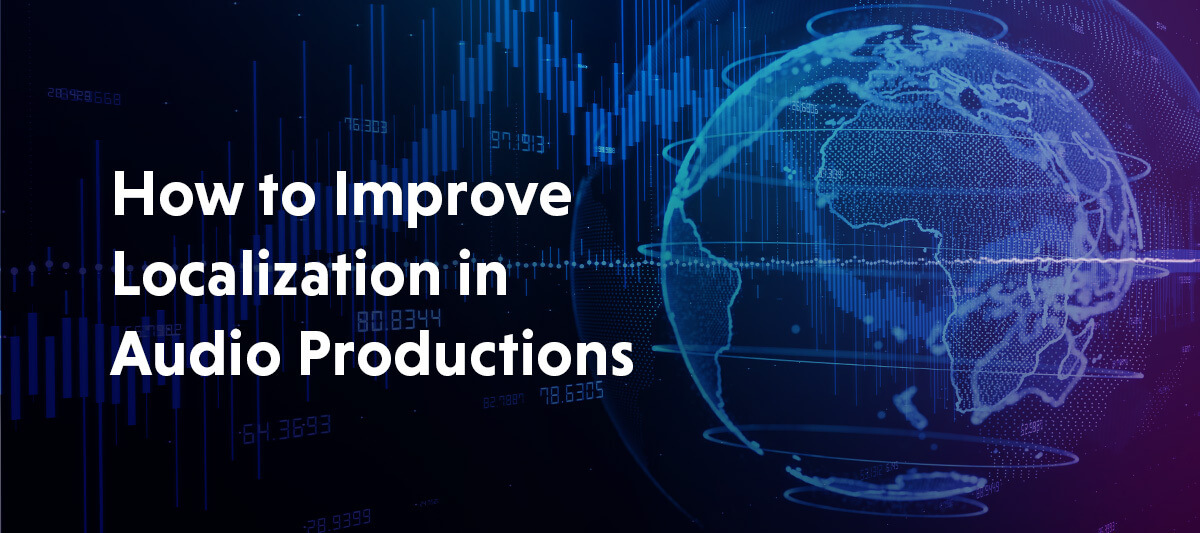SUMMARY
- While English is the dominant language for audio-based content, creators that want to achieve growth need to look at other languages
- Podcast productions usually must face duplicative production costs and lose the uniqueness of their host’s voice to enter a new market
- AI Voice can now help audio productions like podcasting to break into new markets to extend their reach and increase their ad revenue
Audio productions, particularly in the podcasting world, face a severe ceiling to maximizing their potential reach and success—the language barrier. While the English-speaking market is the largest in the world, there are two directions people can go. They can either start creating content in their native tongue and then move to English, but often, many start with English because of its market share. But that's easier said than done.
Breaking Out of the English-speaking Market
Only 360 million people worldwide speak English as their first language out of roughly 7.8 billion people. So if you consider total English speakers, whether it's their first language or not, they only account for 17% of the world. But reaching the other 83% of the world does not come without its challenges.
Many productions do not want to invest in rerecording their content or hiring a new team for a new language without proving the market wants their content first. And for smaller productions, it's simply a cost they cannot afford. But this limitation is more than a simple matter of reaching more people. Revenue implications can help snowball growth and spur continued expansion of a show's content.
To advertise, CPM will always vary. But if you use what the industry standard is today (though it's constantly changing and agencies offer different rates), the revenue potential could mean double for some productions. But they need a viable and more cost-effective way to expand into new markets to get there. Looking at the next most popular podcast languages behind English in the number one spot, you have Spanish, Portuguese, Indonesian, and German. But how does one localize their content?
The Logistics of Localization
After conducting market research to determine content suitability, the decision has been made to translate content into a new language. You'll have to not only hire a translator for the content, but you'll have to hire native speakers to rerecord all your content. For other audio productions outside of podcasting, that might not seem any different than what you've already done for your current market, aside from the translation aspect.
However, for podcasters, that usually means losing the host's voice, which often serves a vital role as part of the show's brand. Instead, teams would either hire a counterpart to their host who speaks the native language or build up their show's brand in that market, which will take time and money. While some may opt for that because that makes sense for their production, some have turned to artificial intelligence (AI) to close the language gap faster and cost-effectively.
How AI Voice Accelerates Audio Content Localization
AI technology can now be used as a tool by hosts and other voice actors, and content creators to develop a clone of their unique voice. Produced by leveraging hours of clean audio of a person speaking, AI can replicate all the characteristics that make someone sound like they do to others.
But what does this exactly mean? Imagine if your production did not have to worry about:
- Sourcing additional talent
- Rerecording content that's already been distributed
- Transcribing and translating every word
- Duplicating production costs for each market you want to enter
Veritone Voice, a hyper-realistic synthetic Voice as a Service (VaaS) solution, enables audio production teams a scalable and more cost-effective way to create, distribute, and monetize audio content in new markets. That means podcast hosts can retain their unique voice qualities while enabling themselves to speak multiple languages even if they aren't fluent.
AI Voice is not a replacement for a talent's voice but rather a tool they can use to extend their creative capabilities beyond what they can do today. Using AI technology will help reduce the language barriers that prevent the free flow of content across the world, extending it to more than three-quarters of the globe that cannot consume it today.






